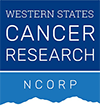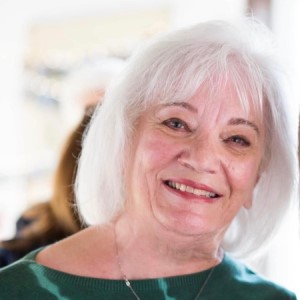Patient Spotlight: Sheila Jones
Sheila Jones is just one person who has benefited from one of the cancer clinical trials we offer in our local communities. Sheila is a 74-year-old mother, grandmother, retired English/journalism teacher, teacher mentor, active learner teacher, outdoor lover, knowledge nerd, travel junkie, life observer and life participant with special interests in literature, art, history, current events, and travels for firsthand experiences.
Lisa Switzer, CEO/Executive Director of WSCR-NCORP, recently sat down with Sheila to get her perspective on how her clinical trial experience impacted her life and cancer treatment.
In your own words, please describe the impact participating in a WSCR-NCORP study on your life? What made you choose to enroll on a study? Was there anything that made you hesitate?
Within hours after receiving my diagnosis, I found myself on the conveyor belt of the cancer treatment journey. I was grateful that my support system immediately arranged for tests and doctors and the information that I needed. But, becoming aware of the study gave me an option. I decided to participate for three reasons. One key factor was the shortened timeframe for chemo treatments. The second was knowing that participating in the study could help future cancer patients fight a better battle against their disease. This gives purpose to the fight I’m facing. Lastly, for some reason I can’t explain, deciding to participate just felt like the right choice. It brought me a sense of peace.
My only hesitation was whether I would end the study as successfully as I could by going the standard treatment route. The study team and Dr. Basche were very positive with me about achieving the outcome I wanted. My youngest daughter did extensive research on the study and prior outcomes of this treatment plan. She didn’t find anything to discourage me. Also, the study and Dr. Basche stated that if circumstances altered with my cancer or the way I responded to the treatments, that I could leave the study or be given different treatment options to best meet my medical needs and cancer recovery. With those assurances, I decided participating was the right choice for me.
Please share how the WSCR-NCORP team has supported you in your cancer journey?
The team has supported me in numerous ways. Initially, they were very open to my myriad of questions and took the time to make sure I understood the scope of the study and my treatment plan. They have also been encouraging. I’m discovering that having cheerleaders is important, and CSR Carley has been one for me. Recently, I had an incident that was navigated easily. My infusion treatments are on Thursdays. With Thanksgiving coming, I realized that this could pose a scheduling delay. When I talked with Dr. Basche’s scheduler, she told me that the normal course was to just delay treatment to the next week, but when I asked if that would impact the study she didn’t know. I pursued the question and learned within just a few hours that the study team preferred that my infusion should be 1-3 days on either side of the normal infusion day. With their help, I was able to schedule my infusion for the Wednesday before Thanksgiving.
If you have a caregiver on your journey with you, can you tell us a little about the role they have played.
I do not have a caregiver. I do have friends and family around me who have my back. My daughter who lives locally is available to help me with things around the house or to run errands. My daughter in Minnesota calls me almost every day to share stories of her life and to help me understand the science and medical treatments since she has college degrees in biology and life science. My dear friend Alice has attended all but two of my infusion treatments, taking notes on my meetings with Dr. Basche and her assistants, and making my time there more fun. I also have a number of friends who call, send messages, and pray for me. I’ve isolated more than I thought because of the rise in Covid that has infected a number of my friends and digestive issues that require I be close to bathrooms. I just want to get through this with as few complications as possible.
Do you feel that your participation in a clinical trial is helping cancer patients in the future?
This has been a key reason for my participation. Cancer is not a journey that I asked for or wanted. However, knowing that my participation in a clinical trial can provide medical answers and medical options for a better journey for future patients has been very important to me. It has given me a sense of purpose.
Do you feel that participating in a clinical trial has allowed you to take a more active role in your cancer journey?
The role I feel I have played is that my cancer is helping scientists and researchers to improve treatments for future cancer patients. My part is small, but as more people participate, the impact can be significant.
What about cancer research, from your perspective as a patient, might our readers not know that you would like to share?
I was a little surprised by the ways that I could be involved. At my initial doctor’s appointment, I had the chance to give a few extra vials of blood for a different study seeking to find a blood test that could provide early identification of breast cancer. That blood test, if found, would become part of a woman’s annual physical exams. I also feel that participating in the study has provided me with more information about my cancer and what is going on in my body. This was not something I had given much thought to before my diagnosis, but has since become important, not only for me, but for my daughters’ and granddaughters’ futures as well.

